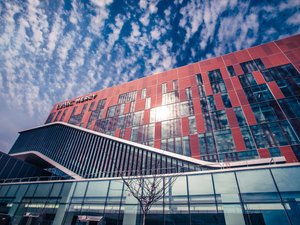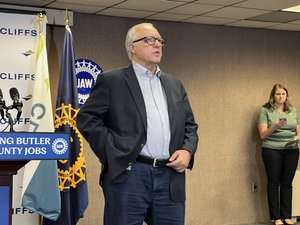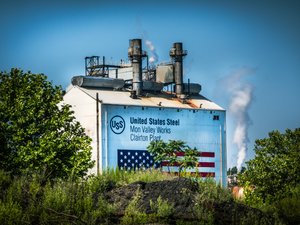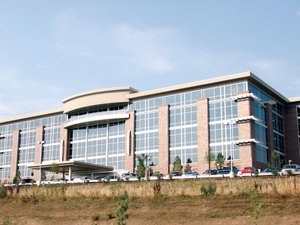
Industries of the future like advanced manufacturing, gene and cell therapy and robotics and automation will help keep the Pittsburgh region and the United States in the leadership position amid a changing world, an audience in Pittsburgh and around the country were told Wednesday.
The nationally known think tank The Brookings Institution, along with Carnegie Mellon University and the University of Pittsburgh, took a deep dive into industrial policy ahead of the 2024 elections that could take the Pittsburgh region and the United States into one of many directions.
Brookings held up Pittsburgh’s stature in industrial issues.
“Pittsburgh is the perfect place to do this. It has been the model of revitalization over many years,” said Cecilia Elena Rouse, president of the Brookings Institution.
Said CMU President Farnham Jahanian: “Pittsburgh is known for being innovative, scrappy and adaptable. We’ve succeeded as a region because we know how to work together and because we don’t know how to let an opportunity pass us by … they have fueled western Pennsylvania’s rise as one of the nation’s greatest hopes for rebuilding America’s innovation ecosystem.”
But it’s an ecosystem that’s under stress from technology like artificial intelligence and data, global competition and a widening gap of economic opportunity.
“Entire industries are in flux and the race to upskill and reskill is more urgent than ever before,” Jahanian said.
Three panels assembled by Brookings discussed Pittsburgh’s place in advanced manufacturing, biotech and robotics and autonomy. It included Pitt BioForge, Krystal Biotech (Nasdaq: KRYS), the Richard King Mellon Foundation, Catalyst Connection, Partner4Work, Digital Foundry and the Allegheny Conference on Community Development, as well as former CMU official and current Pennsylvania Department of Community and Economic Development Secretary Rick Siger.
Workforce development — and the talent pipeline – was a major topic of discussion. Pitt Chancellor Joan Gabel noted that bringing in and keeping new talent and college graduates was key to the region’s success.
“That is the cycle that needs to continue if we’re going to see the kind of outcomes we want to see for the workforce that we need for this entire community to become the one that we know it has the potential to be,” Gabel said.
Siger said he was optimistic about the Pittsburgh region’s growth prospects and placed the state’s newly implemented 10-year plan for economic development as crucial not just for Pittsburgh but around the state.
“We want to create a really aggressive and sort of hyper-competitive framework that you can operate at to recruit and retain companies to drive your innovation economy and to create the enabling environment to make this a great community, things like main streets and workforce development,” Siger said.
Catalyst Connection President Petra Mitchell said that the manufacturing sector represented by her organization — many small and midsized companies — are 2,800 firms strong with 90,000 employees and $12 billion in output in southwestern Pennsylvania. They’ve already adapted to the changes that have occurred in the region over the last 40 years, namely the crashing of the steel industry in the ‘70s and ‘80s.
“The companies that are here today, they’re the ones that have successfully diversified, they have turned away from declining sectors and entered into new, modern, growing sectors,” Mitchell said. “And many times they were the only companies that were offering that glimmer of hope in their local community.”
“Our job is to make this a very resilient, agile community that we can pivot from one area to another,” she said.
That was also the work of the Southwestern Pennsylvania New Economy Collaborative, whose job is to help transition from old sectors of the economy to the newer robotics and autonomy industries. It received $62.7 million through the federal Build Back Better initiative over four years to boost the workforce and industries in that area over an 12-county region.
Its regional economic competitiveness officer, Ben Pratt, said the collaborative is bringing together groups to help develop the workforce now and in the future and fostering the infrastructure needed to build and commercialize companies in robotics and advanced manufacturing.
It's helped in that by Partners4Work and Digital Foundry.
“We felt from the very beginning that it was necessary to invest in the talent, but that talent had to have somewhere to go and stay in the region to apply those skills,” said Sherri McCleary, executive director of Digital Foundry. “And on the flip side, the employers, if they wanted to continue to advance their competitiveness with new technologies."
An employer focus is also crucial to the effort, and it helped the region’s workforce development boards closer align their programs, Cherry said.
“That is actually working for employers, which benefits our clients, which are job seekers, to make sure that we can train them in the best way to get them rapidly attached to a job with as little barriers as possible,” Cherry said.









